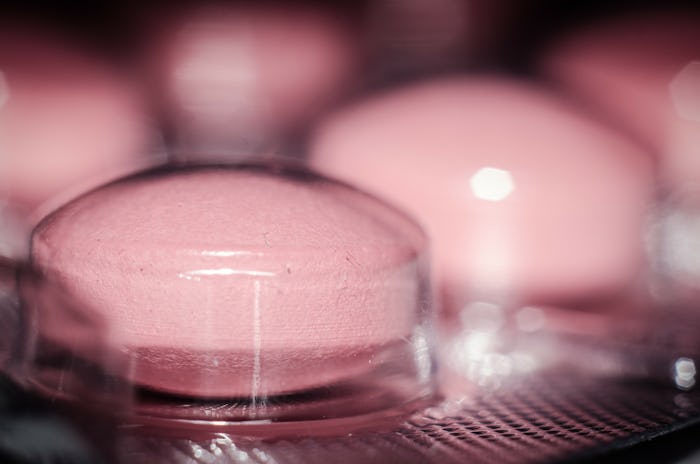Taking an emergency contraceptive pill for the first time probably brings up a lot of questions. For instance, is it normal to bleed after taking Plan Be? The medication, while helpful, is not without side effects.
A morning-after pill, such as Plan B or AfterPill, is used to prevent unwanted pregnancy. According to Planned Parenthood, morning-after pills contain levonorgestrel, a synthetic hormone that can decrease the chances of getting pregnant by 75 to 89 percent. As long as the pill is taken within three days of unprotected sex, the odds of getting pregnant are not high. It is a useful option to have in case of emergencies.
Although the morning-after pill offers a tremendous benefit for anyone looking to avoid pregnancy, most medications include side effects. With this in mind, emergency contraceptives are no different. As noted on Plan B's website, irregular bleeding is sometimes a side effect of taking the medication. Although most people will experience a regular period at the expected time (if not earlier), the medication can result in some spotting or unexpected bleeding. If the bleeding is in any way concerning, then seek the advice of a doctor right away.
In addition to bleeding, taking the morning-after pill can cause a few other side effects. According to the Mayo Clinic, potential side effects from the morning-after pill include cramping, headache, and nausea. For the most part, though, these effects are mild and last only a few days at the most.
With its relatively mild side effects and ease of use, the morning-after pill is a great option in the case of unexpected, unprotected sex. It is not, however, designed to function as a long-term method of birth control — just a backup in case of emergency. Most methods of birth control have a much higher rate of effectiveness when compared to the morning-after pill. For instance, the birth control pill has a use effectiveness rate of 92 percent, whereas Mirena has a use effectiveness rate of 99 percent, according to Options for Sexual Health. Emergency contraceptives are a great option to have, but there are far more effective methods of birth control to consider for everyday use.
